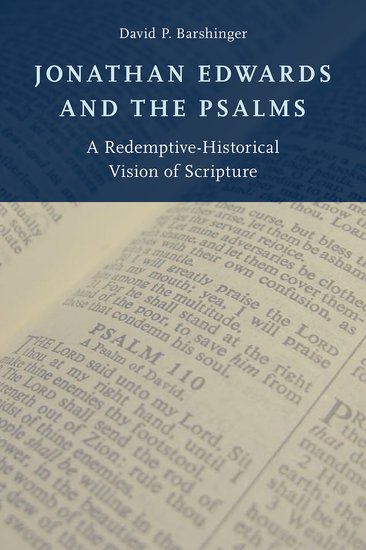Adam Hensley argues that covenantal language in the Psalter points towards David and a future Davidic figure. The Psalter’s shape further cements this notion. [Read more…] about Reviewing Adam Hensley’s Covenant Relationships and the Editing of the Hebrew Psalter
Psalms
Review of Elohim within the Psalms by Terrance Wardlaw
Wardlaw, Jr., Terrance R. Elohim within the Psalms: Petitioning the Creator to Order Chaos in Oral-Derived Literature. New York: Bloomsbury, 2015. ISBN: 978-0-56-765656-8. Pp. xv–190.
 Terrance Wardlaw contributes to the burgeoning field of canonical Psalter scholarship. The canonical approach to the Psalms takes the Psalter to be an organized work with signs of editorial arrangement. Wardlaw’s specific contribution to the field is to clarify how the Psalms use the epithet Elohim.
Terrance Wardlaw contributes to the burgeoning field of canonical Psalter scholarship. The canonical approach to the Psalms takes the Psalter to be an organized work with signs of editorial arrangement. Wardlaw’s specific contribution to the field is to clarify how the Psalms use the epithet Elohim.
Argument
Wardlaw proposes that the reason why Elohim appears in the Psalter involves a theological judgment rather than merely a redactional explanation (e.g., YHWH was not used when the Elohistic Psalter was composed). [Read more…] about Review of Elohim within the Psalms by Terrance Wardlaw
The Twofold Intent of Messianic Psalms
Roland De Vaux, the former director of École Biblique, speaks about the double-intent of messianic psalms. De Vaux, a thorough-going historical researcher, argues that the messianic psalms speak of every king in the Davidic line and ultimately to the ideal king who was to come:
“It has been maintained that Ps 2, 72, and 110 were at first royal psalms, and were modified after the Exile in a Messianic sense; but it is very hard to say what the revisions were. It is more reasonable to suppose that these psalms, like Nathan’s prophecy and other texts referring to royal Messianism, had a twofold meaning from the moment of their composition: every king of the Davidic line is a figure and a shadow of the ideal king of the future. In fact, none of these kings attained this ideal, but at the moment of enthronement, at each renewal of the Davidic covenant, the same hope was expressed in the belief that one day it would be fulfilled. All these texts, then, are Messianic, for they contain a prophecy and a hope of salvation, which an individual chosen by God will bring to fulfilment” (De Vaux, 1961: 110)
Review: Jonathan Edwards And the Psalms by Barshinger
 Books At a Glance recently published by review of Jonathan Edwards And the Psalms. In my review I conclude:
Books At a Glance recently published by review of Jonathan Edwards And the Psalms. In my review I conclude:
“Any serious student of Jonathan Edwards must read this study. Barshinger has rehabilitated Edwards’ reputation as a Biblical exegete. The Bible, not philosophy or theology, constitutes his focus. Barshinger illustrates this well by detailing Edwards’ engagement with the Psalms. Additionally, Edwards’ theology will interest pastors who too would like to interpret the Psalms within an historical-redemptive framework. I heartily recommend this work for those with the drive to read a dense, academic, and yet fruitful work on Jonathan Edwards and the Psalms.”
For the full review, click here.
Psalm 108
A Song, a mizmor of David:
My heart stands firm, O God.
I will sing and will play music, indeed, to my glory!
Awake, o harp and lyre.
I will awaken the dawn!
I will praise you among the nations, Yahweh,
and I will make music among the peoples.
For your faithfulness is great—it goes above the heavens!
And your truthfulness goes above the sky!
Rise above the heavens, God,
and let your glory rise above all the earth!
So that your beloved ones will be saved;
Grant salvation by your right hand and answer me! [Read more…] about Psalm 108
Hearing the Trinity’s Voice in the Psalms
The psalms contain the emotions of the soul and portray the experiences of life, but they also direct us god-ward. If we only read the psalms in a personal or internal way, we miss something important.
And yet reading the Psalms in a god-ward way does not make our reading impersonal. John Calvin begins his Institutes by asking the question: Do we start with God or with man? It is nearly impossible to answer that, since one always leads to the other. When we start with ourselves and our weaknesses, we turn to God who is our strength. When we start with God, we come to know ourselves truly. For Calvin, “it is evident that man never attains to a true self-knowledge until he [has] previously contemplated the face of God, and come down after such contemplation to look into himself” (Bk 1., Ch 1., §2).
The Psalms uniquely contemplate the face of God. They record divine conversations of the Trinity, of the Father to the Son and of the Son to the Father. We may wonder how the Father and Son talk to each other since they are both God. To some degree, the Psalms satisfy our wonder, as they pull back the veil, as it were, and let us listen to the Trinity speak.
[Read more…] about Hearing the Trinity’s Voice in the Psalms


